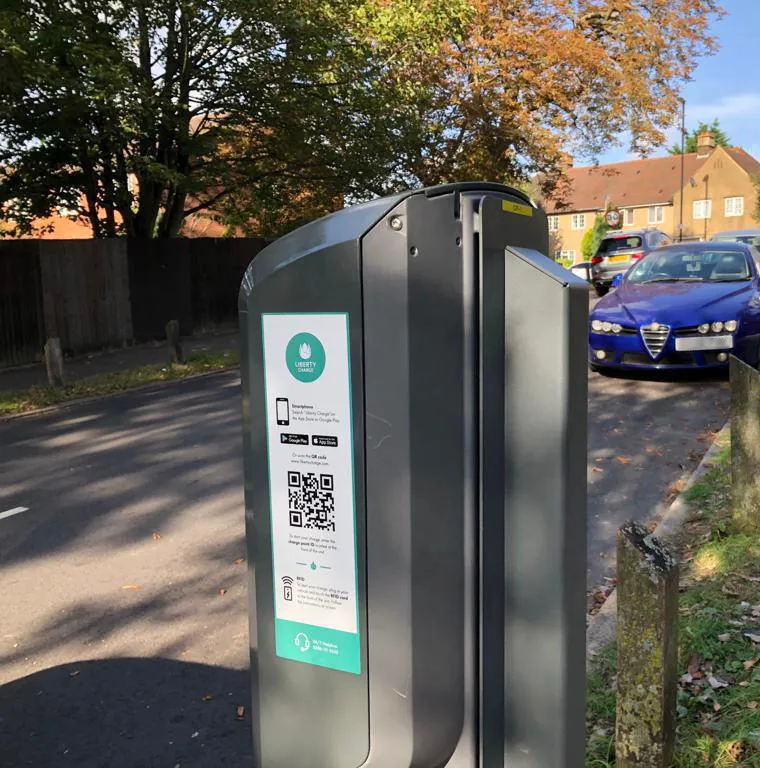Collaboration between industry participants will be essential to bring alternative fuel applications to market, according to PwC's latest publication Charging Forward: Electric Vehicle Survey. While automakers continue to bring electric vehicles (EVs) to the marketplace, governments, local municipalities and utility companies are challenged with building the infrastructure required to support these vehicles long before mainstream consumption will take hold.
PwC surveyed over 200 executives across multipl
April 19, 2012
Read time: 3 mins
Collaboration between industry participants will be essential to bring alternative fuel applications to market, according to 5019 PriceWaterhouseCoopers latest publication Charging Forward: Electric Vehicle Survey. While automakers continue to bring electric vehicles (EVs) to the marketplace, governments, local municipalities and utility companies are challenged with building the infrastructure required to support these vehicles long before mainstream consumption will take hold.
PwC surveyed over 200 executives across multiple industries, including automotive, technology, utilities, energy and government. Approximately one-third (33.8 per cent) of respondents felt the lack of investment to modernise the grid is a primary roadblock preventing the widespread support of EVs. In addition, the lack of capacity during peak energy consumption hours also is a concern, as indicated by 31.1 per cent of those surveyed.
While there is little doubt that collaboration between relevant parties such as the government, utilities, local municipalities, and private interests is needed to develop a sustainable EV infrastructure (35.3 per cent of respondents felt each should share the financial burden), government agencies in particular will be creating ample financial incentive to other participants. In fact, this is already a reality as governments around the world have offered billions of dollars in the form of loans, grants, and rebates through various stimulus programmes.
"Funding the development of a modernised infrastructure to support EVs remains a point of contention for industry participants," said Brandon Mason, Autofacts senior analyst.
Companies continue to work on achieving a balance between investing in development of new technologies and passing the costs on to the consumer. In addition, bringing the cost of EVs in line with internal combustion engine (ICE) vehicles remains a key challenge to achieve widespread adoption. Almost half of the respondents (41.6 per cent) indicated that long-term cost savings is the primary reason consumers would be willing to pay a premium for an EV.
"As automakers continually improve the fuel efficiency of traditional ICE vehicles to meet emissions standards in the coming years, consumers are rethinking the additional premium required for an EV," continued Mason. "However, as fuel prices escalate, the demand for an EV or hybrid vehicle will likely increase in the near-term."
Nearly 68.8 per cent of respondents believe hybrids and plug-in hybrid electric vehicles (PHEVs) are the most appealing to consumers overall."
In terms of the assembly outlook for hybrids and EVs, Autofacts is forecasting that annual production will reach approximately nine million units by 2020, representing roughly nine percent of global market share. Of that, nearly one third, or three million units, will be plug-in and pure electric vehicles. Significant volume increases are expected in the 2017-2020 timeframe as second and third generation EV systems and supporting technologies are rolled out.
PwC surveyed over 200 executives across multiple industries, including automotive, technology, utilities, energy and government. Approximately one-third (33.8 per cent) of respondents felt the lack of investment to modernise the grid is a primary roadblock preventing the widespread support of EVs. In addition, the lack of capacity during peak energy consumption hours also is a concern, as indicated by 31.1 per cent of those surveyed.
While there is little doubt that collaboration between relevant parties such as the government, utilities, local municipalities, and private interests is needed to develop a sustainable EV infrastructure (35.3 per cent of respondents felt each should share the financial burden), government agencies in particular will be creating ample financial incentive to other participants. In fact, this is already a reality as governments around the world have offered billions of dollars in the form of loans, grants, and rebates through various stimulus programmes.
"Funding the development of a modernised infrastructure to support EVs remains a point of contention for industry participants," said Brandon Mason, Autofacts senior analyst.
Companies continue to work on achieving a balance between investing in development of new technologies and passing the costs on to the consumer. In addition, bringing the cost of EVs in line with internal combustion engine (ICE) vehicles remains a key challenge to achieve widespread adoption. Almost half of the respondents (41.6 per cent) indicated that long-term cost savings is the primary reason consumers would be willing to pay a premium for an EV.
"As automakers continually improve the fuel efficiency of traditional ICE vehicles to meet emissions standards in the coming years, consumers are rethinking the additional premium required for an EV," continued Mason. "However, as fuel prices escalate, the demand for an EV or hybrid vehicle will likely increase in the near-term."
Nearly 68.8 per cent of respondents believe hybrids and plug-in hybrid electric vehicles (PHEVs) are the most appealing to consumers overall."
In terms of the assembly outlook for hybrids and EVs, Autofacts is forecasting that annual production will reach approximately nine million units by 2020, representing roughly nine percent of global market share. Of that, nearly one third, or three million units, will be plug-in and pure electric vehicles. Significant volume increases are expected in the 2017-2020 timeframe as second and third generation EV systems and supporting technologies are rolled out.








